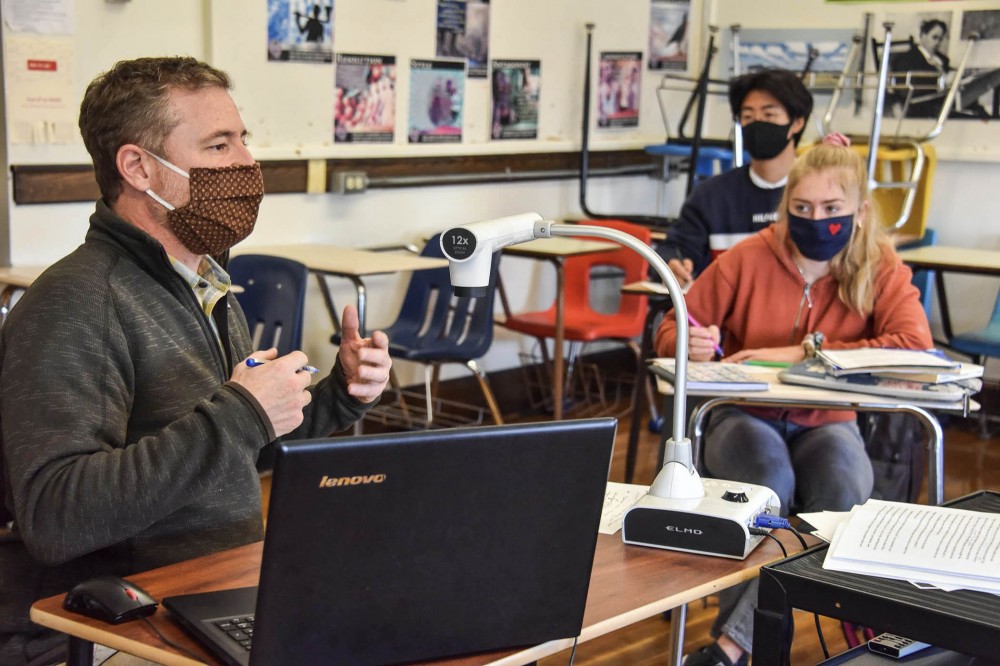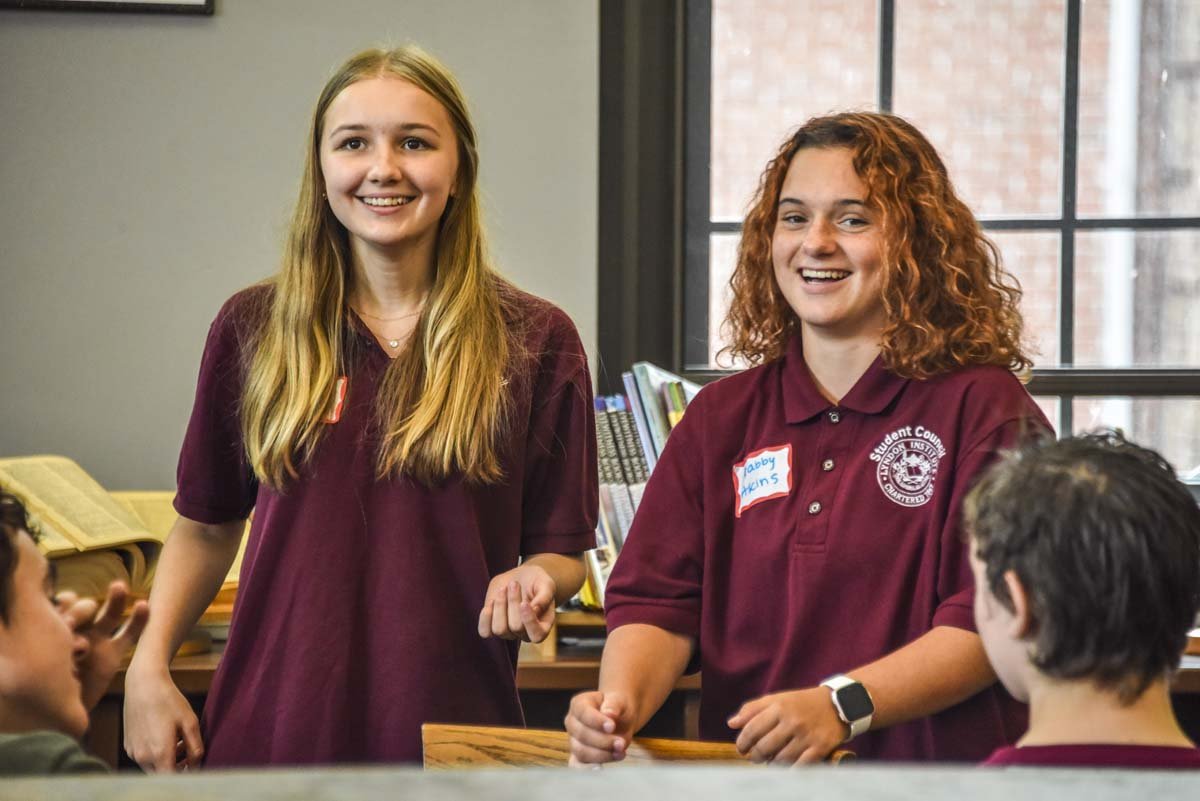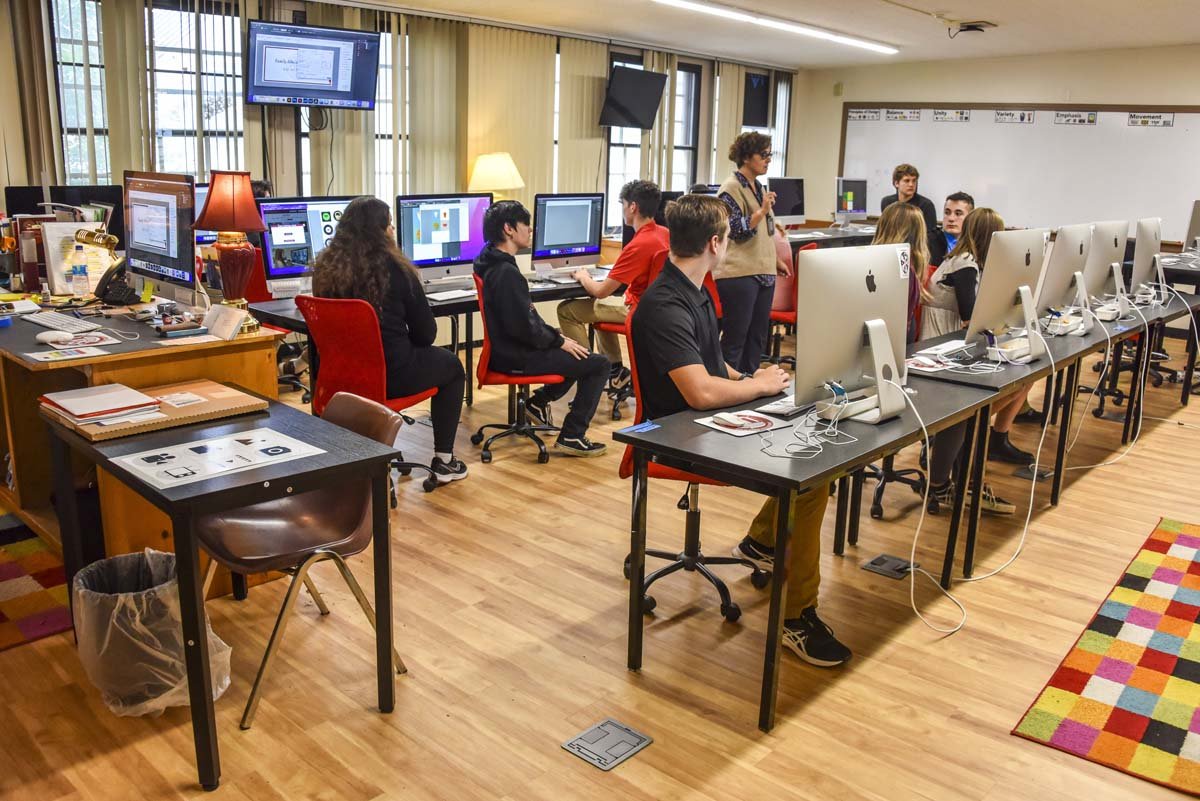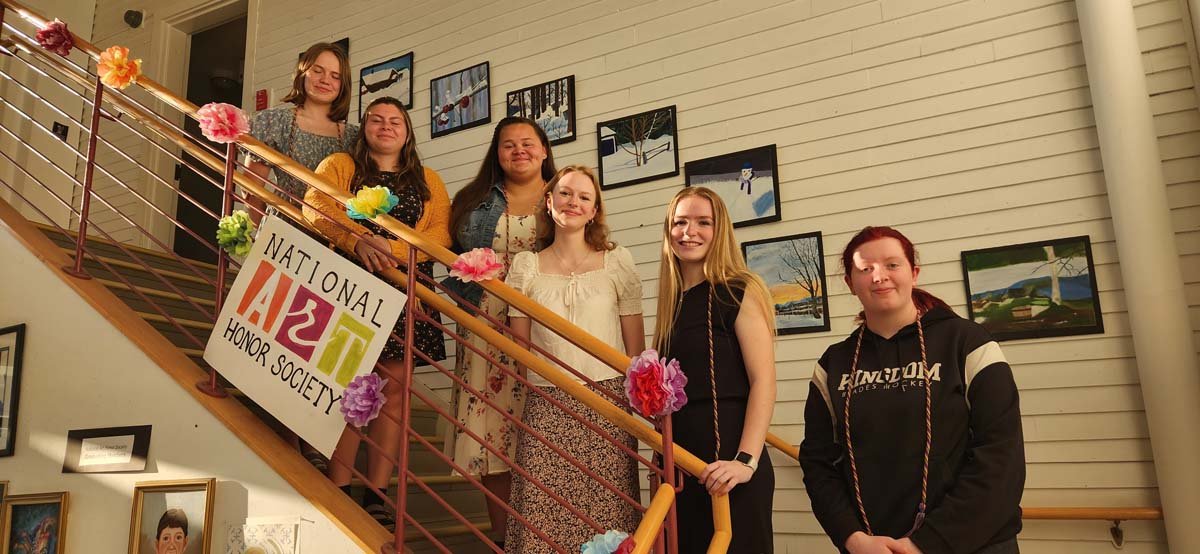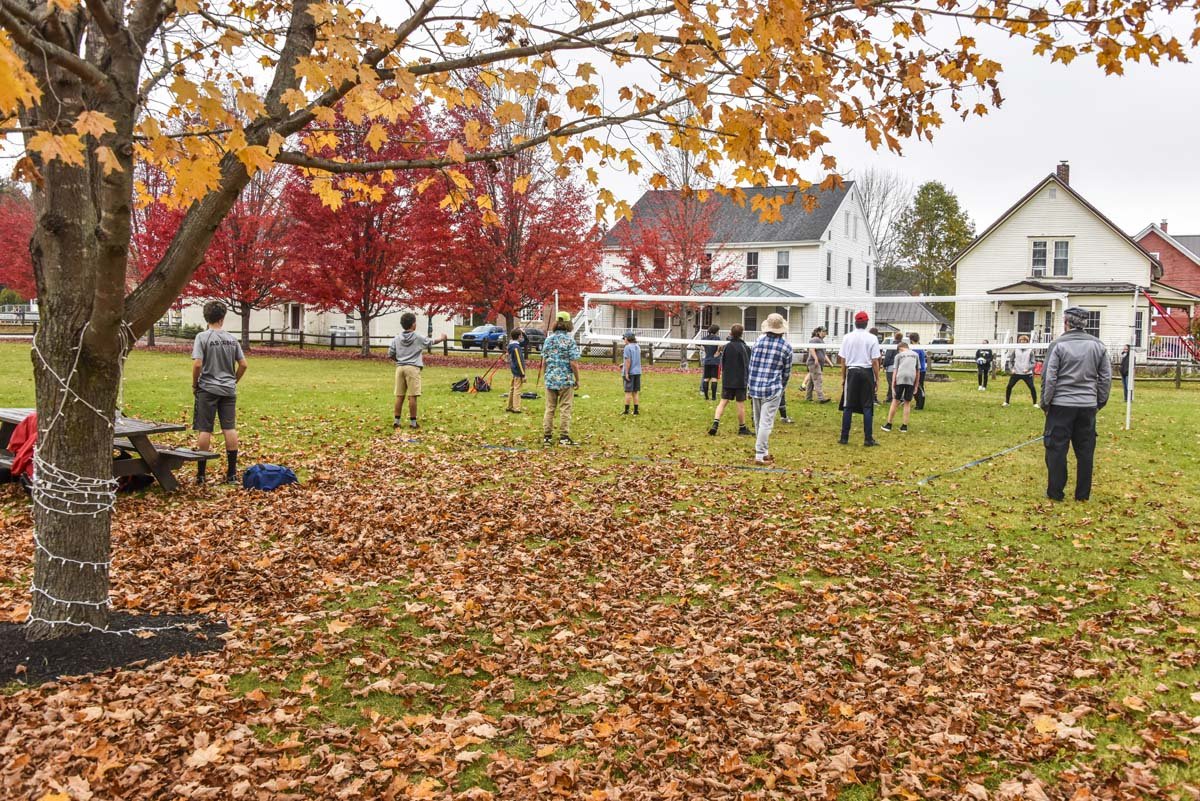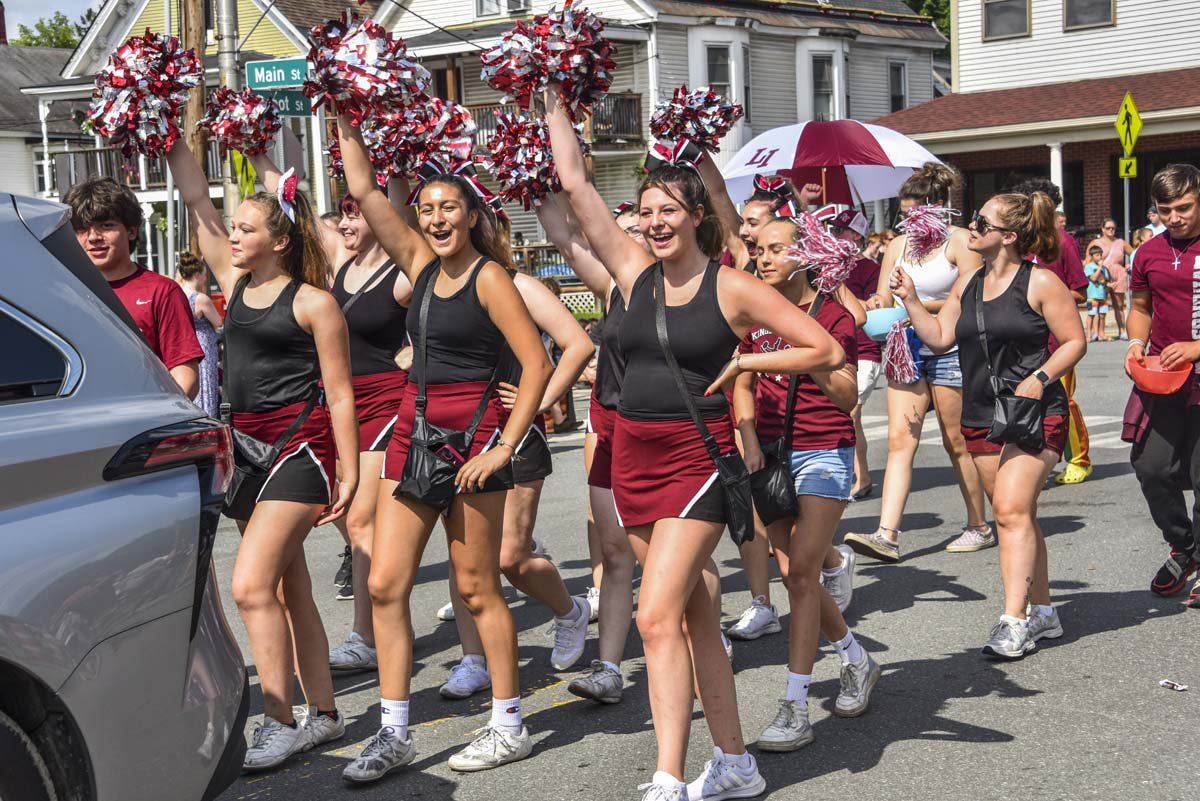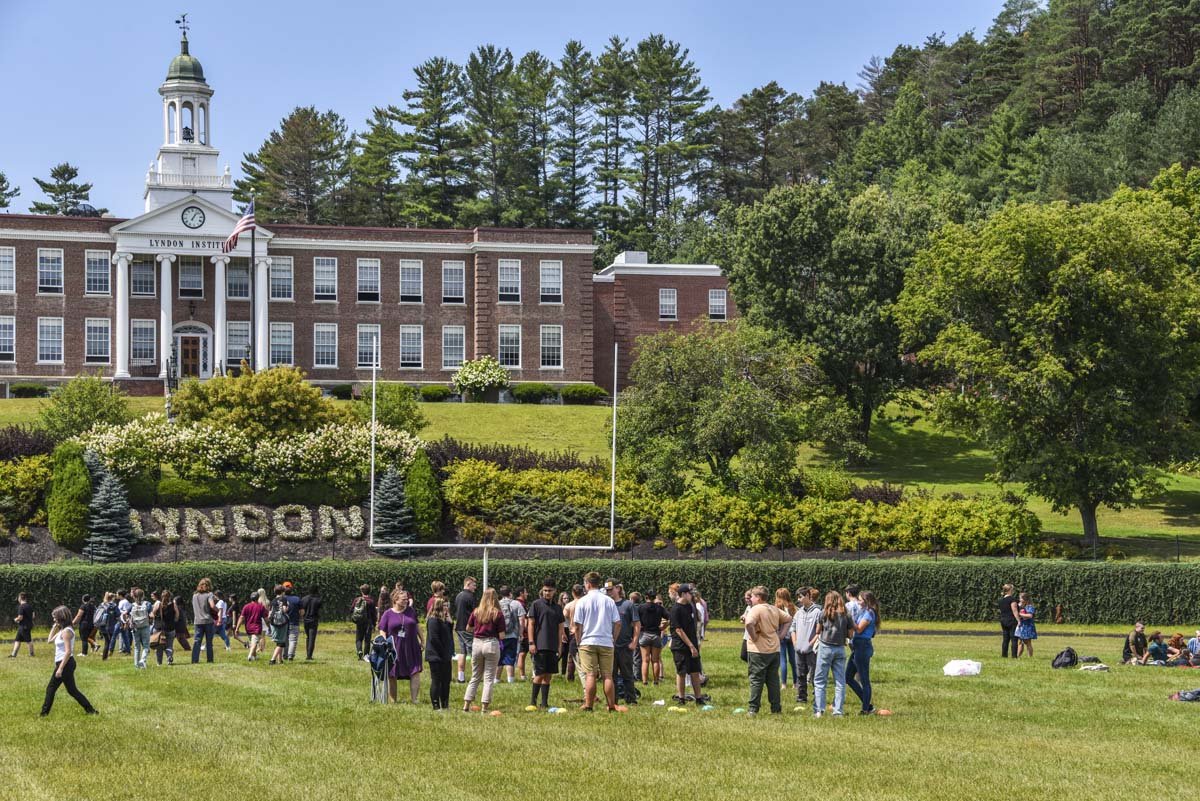- Our School
- Admissions
-
Academics
- Divisions and Faculty
- Commencement 2024
- January Term
- International Program (ESOL)
- College and Career Counseling
- Upward Bound
- Library/Monahan Academic Commons
- Career/Technical Education
- Lyndon Learning Collaborative
- Flexible Lyndon Institute Pathways (FLIP)
- Specialized Instruction
- Adult Continuing Education
- Lyndon Institute Course Catalog
- Student Services
- Arts
- Athletics
- Campus Life
- Support LI
- Alumni
« Back
Class Acts: A Heroic Tradition
November 12th, 2020
By David Stahler, Jr.
Every year my British Literature Honors class at Lyndon Institute begins with a study of the Anglo-Saxon epic Beowulf and one of my all-time favorites, the medieval romance Sir Gawain and the Green Knight. Both works, in their own way, embrace the “heroic tradition” in literature—stories of heroes who journey into the unknown, face off against monsters, against the darkness, against their own fears, then return home forever changed.
My students enjoy Beowulf, but they especially love the Arthurian romance, the story of a young, unproven Sir Gawain who accepts an unusual challenge on behalf of his uncle, King Arthur. The challenge—to chop off the Green Knight’s head—ends up leading to a quest in which he must overcome temptation and fear and ultimately confront his own mortality. I like to think of it as one of the first YA (young adult) stories—the tale of an adolescent coming to terms with his own identity and growing from the experience. I suspect this is the reason why (aside from the poem’s vivid action sequences and sometimes bawdy humor), my students come to love it as much as I do. They connect with Gawain on a fundamental level.
As the days turn cold and the leaves fall from the trees, our study concludes with one of my favorite projects—The Quest. The idea for the project, like the course itself, is one I inherited from poet and retired LI teacher Gerry Stork. After the Gawain poem is put away, students are asked in turn to design a quest for themselves, one which they must then undertake and, at its conclusion, tell the story of in a personal essay.
For many of them, the biggest hurdle is coming up with a good quest. I tell them the point is to challenge themselves in a significant way, to get out of their comfort zone. It’s harder than you think. We all get in a rut and have a natural tendency to take the path of least resistance. After all, life is hard enough as it is. But we also need, from time to time, to break from our routine, to stop and think about what’s missing in our lives, about what we really need. Not all quests need to be an attempt to fill a void—many are motivated by the spirit of adventure and embracing the unknown with a joyous heart. Nor do all, or even most, quests need to be major life-changing experiences. But the quests that tend to yield the deepest outcomes tend to be ones in which the student explores that place of fear or pain and really takes a chance in facing it.
I offer suggestions, talk about previous quests former students (perhaps some who will read this) have undertaken. The projects tend to break down into three categories.
First is the physical quest. This is the most straightforward and usually the most popular. Some are focused journeys into the unknown, which often turn out to be places closer than we think—climbing a nearby mountain, exploring a body of water, navigating an overland trip from one point to another. Others are tests of physical endurance—an extended fast, embarking on a new workout or meditation or nutritional routine, cold showers for a week. Depriving the self of a particular sense for a day or two with a blindfold or earplugs is a popular choice, as is curtailing the use of a particular part of the body (navigating our hilly campus in a wheelchair has been an eye-opening experience for more than one of my students). This year a particularly loquacious student took a three-day vow of silence. For braver students, a night of solo camping in the dark and often frigid October woods presents a tough challenge.
Then there is the intellectual quest, the quest for knowledge. These have been some of my favorites. One year, a student researched a tiny, overgrown cemetery near her home in Sheffield. A study of the graves and a trip to the town archives yielded a story of a family in the late nineteenth century who built a world for themselves on a hillside farm only to suffer loss in the 1918 pandemic, including the death of several children. Her essay became a beautiful reimagining of the family members’ lives, their trials and joys. Years ago, another student had always been curious about the mansion on Darling Hill. After researching its history, she summoned the courage to knock on the owner’s door and ask for a tour. He graciously showed her around the house and grounds.
Finally, there is the psychological quest. These quests often are the ones whose undertaking takes the most courage and whose essays hit the hardest. I’ve had students confront their depression or debilitating anxiety and decide to finally initiate counseling. Students have used the quest as an opportunity to confront phobias, to take the first step in rebuilding a broken relationship with a parent, sibling, or friend. Others have worked to overcome an innate shyness—taking a chance on asking out that boy or girl the student has been pining for or working up the courage to introduce themselves to a new group of friends.
Some have gone far into the deep end of the pool. One girl who had felt bullied throughout her life wrote a speech about the experience and delivered it to the student body in assembly. The look of surprise and joy on her face when she received a standing ovation at the end was unforgettable. Another student who had recently lost her father to illness felt she hadn’t properly mourned his passing. Her quest to bring some of his cremated remains to a place that was special to both of them resulted in a remarkably beautiful narrative that became its own eulogy.
Not all quests are successful. Some students fall short of the lofty goals they set for themselves. Others experience a kind of failure even in success. One student who had never met her father did some careful detective work and managed to track him down and set up a meeting. The reunion did not go well, and in the process she learned a painful lesson about why her family had kept her in the dark. I warn them ahead of time that not everyone will succeed, but I also tell them that it doesn’t necessarily matter, that it’s not the destination but the journey that shapes what we become, that our failures can teach us as much about ourselves as our successes—and often make for better stories.
There are a few other parameters to the assignment. No shared quests are allowed (though depending on the nature of the quest, they may—and sometimes must—not be alone). I reserve veto privileges over any quest proposal that seems outright dangerous or foolhardy (and trust me, there have been plenty—they are teenagers, after all) and any with a modicum of real risk require parental permission.
Beyond that, I try to be as open-minded as possible when reviewing their proposals. I’ve learned over the twenty some odd years that I’ve been doing this that everyone has a different comfort zone—what for some is a walk in the park is for others absolutely terrifying, and what often seems unambitious at first blush can result in a captivating final narrative. Some quests are duds, but I’ve made peace with that, too. I let them all know from the start that they’ll get out of it what they put into it, which is pretty much true for all of us in the end. Not all rise to the challenge, but most do.
For me, the goal of teaching literature is to get my students to understand how art both connects to and enriches their lives; how the study of poetry makes them more human and makes them feel their humanity more deeply. The French author Anais Nin wrote that “life shrinks or expands in proportion to one’s courage,” and these ancient narrative poems from medieval England not only entertain but, through this project, inspire them to experience the truth of that, as well.
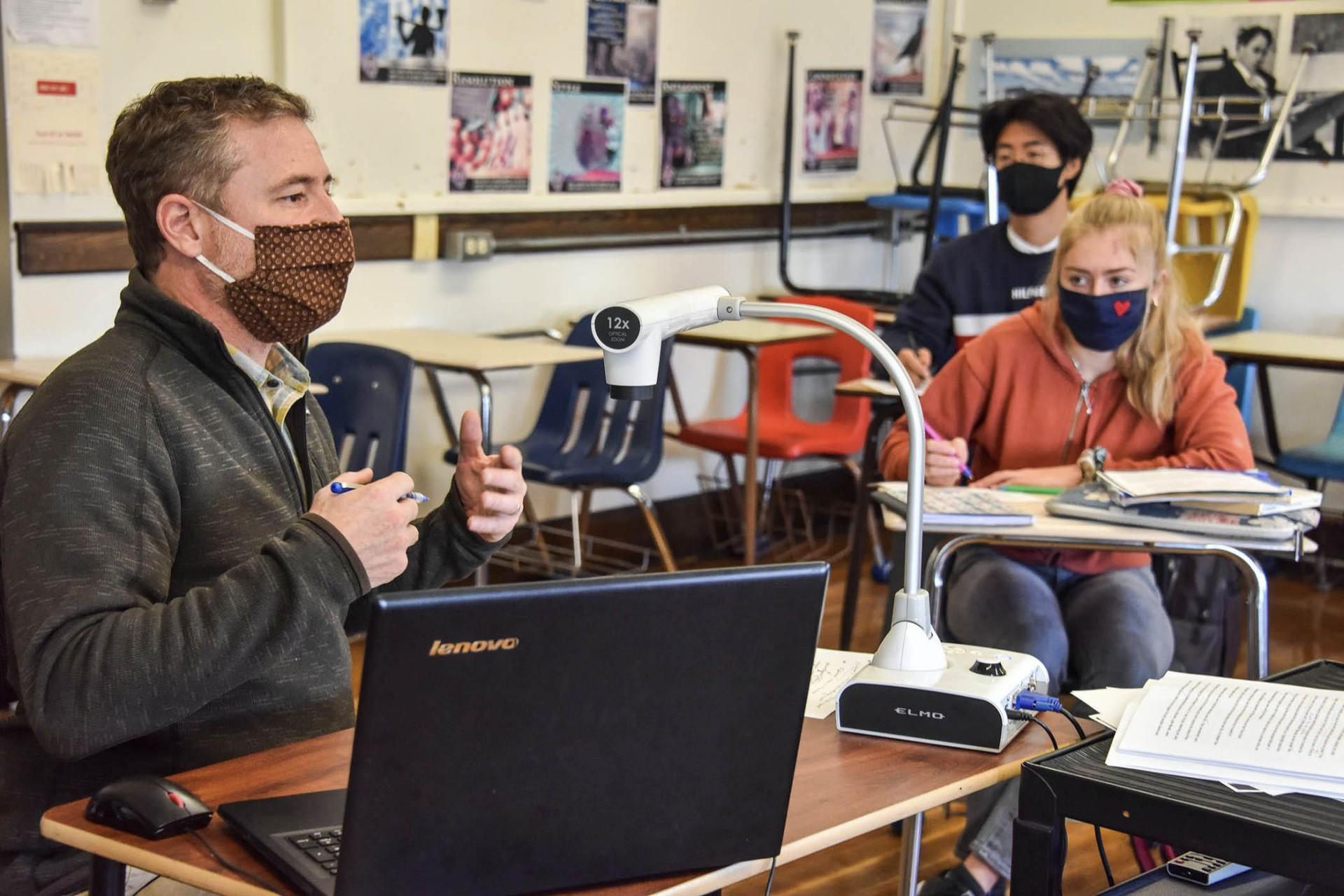 Photo caption: Lyndon Institute teacher David Stahler, Jr. (left) is pictured here teaching students in his British Literature Honors class on Monday, November 9, 2020.
Photo caption: Lyndon Institute teacher David Stahler, Jr. (left) is pictured here teaching students in his British Literature Honors class on Monday, November 9, 2020.
Posted in the category Front Page.

